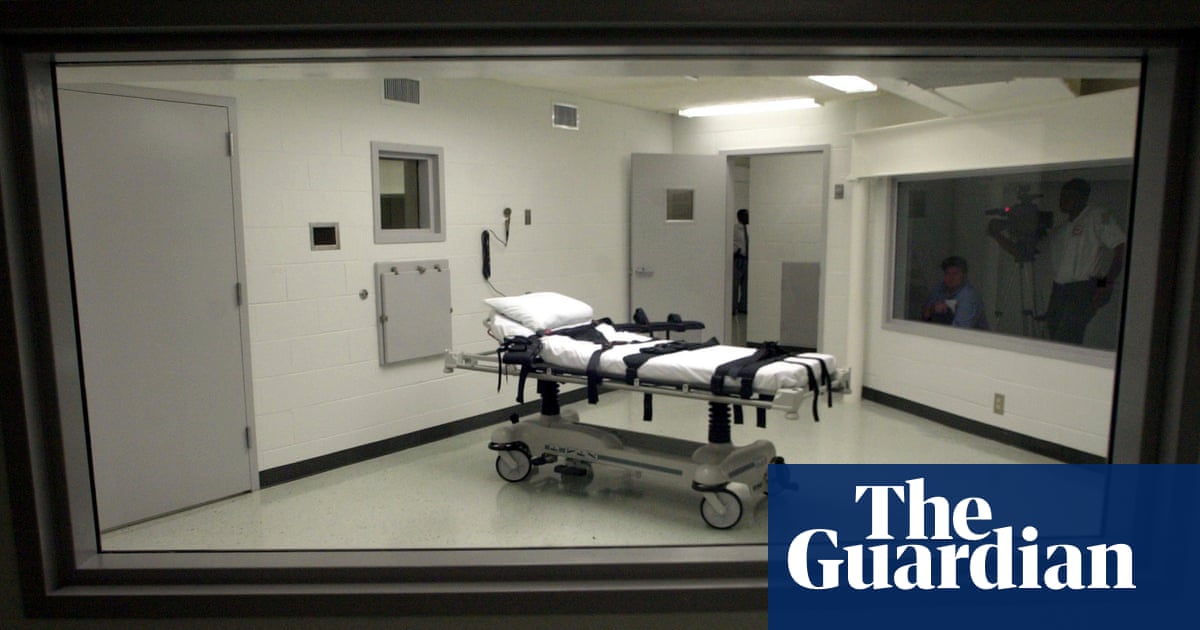Move follows Alabama’s recent killing of death row inmate Kenneth Smith using previously untested method
Three of the largest manufacturers of medical-grade nitrogen gas in the US have barred their products from being used in executions, following Alabama’s recent killing of the death row inmate Kenneth Smith using a previously untested method known as nitrogen hypoxia.
The three companies have confirmed to the Guardian that they have put in place mechanisms that will prevent their nitrogen cylinders falling into the hands of departments of correction in death penalty states. The move by the trio marks the first signs of corporate action to stop medical nitrogen, which is designed to preserve life, being used for the exact opposite – killing people.
The green shoots of a corporate blockade for nitrogen echoes the almost total boycott that is now in place for medical drugs used in lethal injections. That boycott has made it so difficult for death penalty states to procure drugs such as pentobarbital and midazolam that a growing number are turning to nitrogen as an alternative killing technique.
Now, nitrogen producers are engaging in their own efforts to prevent the abuse of their products. The march has been led by Airgas, which is owned by the French multinational Air Liquide.



If you murder a murderer, that makes you a murderer. Just because the state is the one doing it doesn’t make it okay.
Same (faulty) logic used to tell the oppressed not rise up against their oppressors. If you’re going to conflate all killing with murder, be prepared to get into weeds like self defense and right to die. If you’re willing to admit killing humans is more nuanced than that, then and only then we can have a real discussion.
There is a difference between reacting to a situation vs creating a new situation.
Very few people would argue against having to use violence to stop someone else from using it, in the moment where other options don’t present themselves. However a murdered container in prison is no longer a threat. The state has the luxury of just keeping them there until time and nature does her thing.
Basically the rules for a crisis are not the rules for a non-crisis. Additionally, if it is required to use violence to stop violence at least the hope is something bad won’t happen. Not the case for someone in jail. The bad thing already happened.
More broadly Ukraine has the right to defend herself. She does not have the right to burn down parts of Russia 40 years from now when the war is long over.
If you bake bread, you are a bread baker. If you play football, you are a football player. If you murder someone, you are a murderer.
If you don’t commit the crime of murder, you are not a murderer. Murder is a legal term. Administering a death penalty is not murder, since it is not a crime.
No matter how much batman says otherwise, there is nothing inherently not ok about death penalty for murderers. Of course, you can dislike it all you want. But don’t go slandering people that disagree with you.
Arguably, the opposite is true: If I decide I really want to kill you, what should be the minimal punishment? Is it ok to just pay a fine? Is it ok to be in prison for a month? How about a year? What if I decide the slap on the wrist punishment is worth it? Why should the punishment be less than paying with my own life in kind? Why is your life worth less than mine when I am the murderer in this hypothetical?
An eye for an eye leaves everyone blind.
Life in prison.
Murder is not exclusively a legal term; it is also used in ethical/moral discussions, like how I used it. A government can decide legallity, but it cannot decide if something is moral or not, although most governments attempt to do so. What is moral or not is also not universal, and can vary across different cultures and time periods.
You mean like what you just did with this comment?
Keep in mind, in the US, there is a ~4% false conviction rate for the death penalty. That means that ~4% of people who get the death penalty are innocent.
Source: https://www.pnas.org/doi/full/10.1073/pnas.1306417111
I do remember about the 4%. That is why I don’t support death penalty.
I am just honest about the reason why I don’t support it, instead of pretending I am somehow morally superior for refusing to kill.
As for life in prison, that is up to everyone’s values, whether that is equivalent. In my view, it is not.
I am also honest about why I don’t support it. I think killing people for any reason is wrong except for the case of a direct threat of violence (self defense). The 4% statistic is just another one of my reasons, but not my main reason.
I mean, you are free to subjectively think that and conform your own actions to that. Refuse to participate in anything death penalty related.
But unless you have any rational basis for it, I don’t see why anyone else should care about what you think.
The same way that the Holocaust was legal…